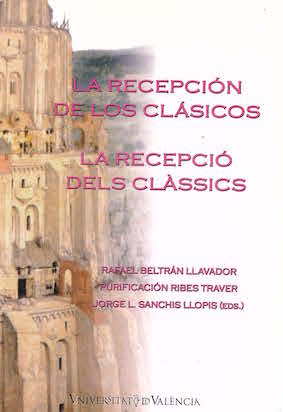Francés Carrós Pardo de la Casta, un humanista para el Cancionero general
DOI:
https://doi.org/10.7203/qf-elit.v10i0.5102Paraules clau:
Humanisme, Carrós Pardo de la Casta, poesia, cançoner Resum
Resum
El present estudi se centra en la poesia de Francès Carrós Marró de la Casta, un autor valencià, el poema del qual “Consolo d'amor”, publicat per vegada primera en el Cançoner general de 1511 pot ser interpretat a la llum de la doctrina de l'humanisme medieval. El poema, compost en castellà, pot ser llegit com una versió lírica de la Regoneixença i moral consideració sobre els vicis i forces d´amor, una segona obra de Carrós escrita en prosa catalana medieval que planteja una digressió sobre l'amor humà des de la perspectiva d'un moralisme laic que posa en relleu el deute contret amb Dante i especialment amb Petrarca. En la mateixa línia que el Petrarca dels Trionfi i del Canzoniere, tots dos textos incideixen en els efectes més humans de l'amor i proposen un ús molt particular de l'al·legoria, no solament amb valor didàctic sinó també poètic i literari.
 Descàrregues
Descàrregues
Descàrregues
Publicades
Com citar
-
Resum176
-
PDF (Español)140
Número
Secció
Llicència
 Este obra está bajo una licencia de Creative Commons Reconocimiento-NoComercial-SinObraDerivada 4.0 Internacional.
Este obra está bajo una licencia de Creative Commons Reconocimiento-NoComercial-SinObraDerivada 4.0 Internacional.
Tots els documents inclosos a OJS són d'accés lliure i propietat dels seus autors i/o institucions editores, i per tant, qualsevol acte de reproducció, comercialització, comunicació pública o transformació total o parcial necessita el consentiment exprés i escrit d'aquests.
________
Authors who publish with this journal agree to the following terms:
- Authors retain copyright and grant the journal right of first publication with the work simultaneously licensed under a Creative Commons Attribution License that allows others to share the work with an acknowledgement of the work's authorship and initial publication in this journal.
- Authors are able to enter into separate, additional contractual arrangements for the non-exclusive distribution of the journal's published version of the work (e.g., post it to an institutional repository or publish it in a book), with an acknowledgement of its initial publication in this journal.
- Authors are permitted and encouraged to post their work online (e.g., in institutional repositories or on their website) prior to and during the submission process, as it can lead to productive exchanges, as well as earlier and greater citation of published work (See The Effect of Open Access).




